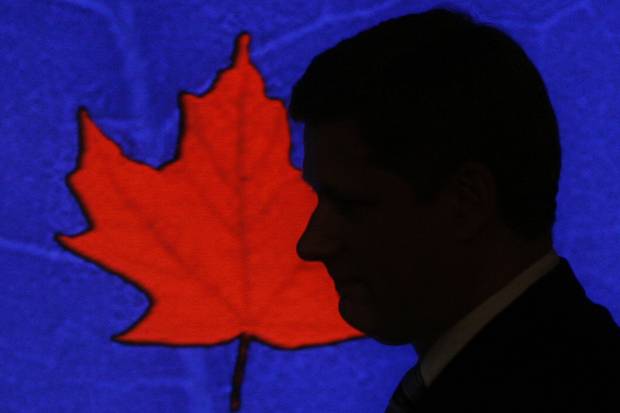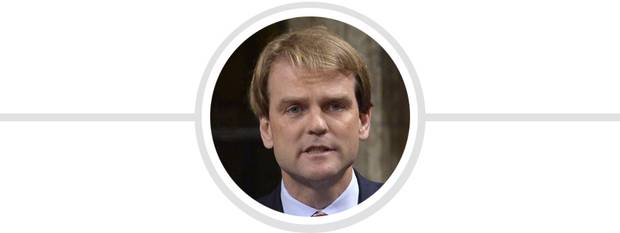
Chris Alexander
Age: 48
Background: A former diplomat, Mr. Alexander joined the federal Tories by winning a Toronto-area battleground riding in 2011. As Stephen Harper's immigration minister, he oversaw sweeping and controversial changes to Canadian residency requirements and dual-citizenship laws. In the Harper government's final months, he came under heavy criticism for Ottawa's handling of the Syrian refugee crisis and a "barbaric cultural practices" tip line proposed by him and one of his current leadership rivals, Kellie Leitch.
Notable policies: Mr. Alexander touts immigration as the key to economic growth, pledging to increase Canada's intake of immigrants to a maximum of 400,000 new arrivals a year.
More reading: Alexander 'flat-footed' on refugee crisis
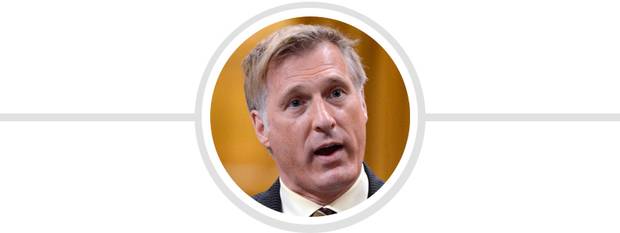
Maxime Bernier
Age: 54
Background: Mr. Bernier left the investment world in 2006 to run for the Conservatives as a star candidate in Quebec. He held several cabinet roles in Mr. Harper's government, including foreign affairs minister, a post he resigned after a scandal over classified files he left at the home of his then-girlfriend, Julie Couillard, who had ties to members of the Hells Angels biker gang.
Notable policies: A die-hard libertarian, Mr. Bernier has promised to dismantle Canada's supply-management system for dairy and poultry, break Quebec's maple-syrup cartel and open the airline industry to foreign ownership. His policies and appeal in Quebec got an endorsement from former leadership candidate Kevin O'Leary, who dropped out of the race on April 26 to back Mr. Bernier for leader.
More reading: Bernier: "I won't change. I want my platform to be the platform of the Conservative Party of Canada" (for subscribers)
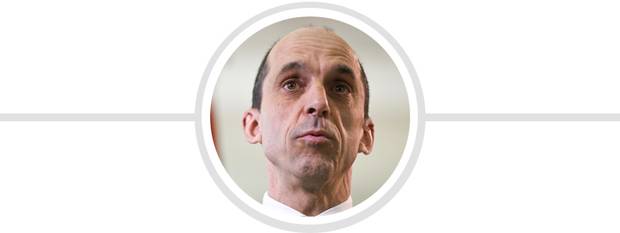
Steven Blaney
Age: 51
Background: An engineer and environmental consultant, Mr. Blaney ran for the Tories in 2006 in Quebec, later becoming president of the Quebec Conservative caucus. In 2011, he was promoted to veterans afairs minister and later public safety minister, implementing the anti-terrorism laws that followed the 2014 attack on Parliament Hill.
Notable policies: Mr. Blaney has promised to ban women from wearing the niqab at citizenship ceremonies and polling stations, doubling down on a Harper-era policy that the courts struck down after a legal challenge by Pakistani-Canadian Zunera Ishaq.
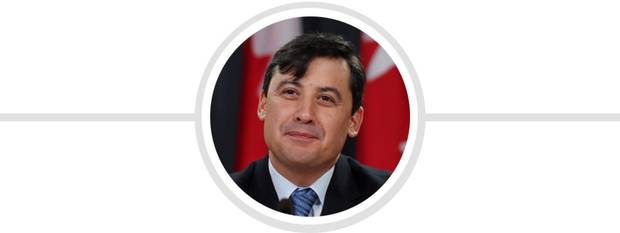
Michael Chong
Age: 45
Background: A veteran Progressive Conservative who joined the merged Conservative Party in 2004, Mr. Chong was intergovernmental affairs minister in Stephen Harper's first cabinet, but quit in protest over Mr. Harper's motion recognizing the Québécois as a nation within Canada. As a backbencher, he championed the Reform Act, a private member's bill to give caucuses more power to challenge party leaders. An amended version of his bill passed in 2015.
Notable policies: Mr. Chong has made climate change the centrepiece of his leadership campaign, promising to introduce a revenue-neutral carbon tax.
More reading: Why a Tory leadership candidate backs carbon taxes (for subscribers)
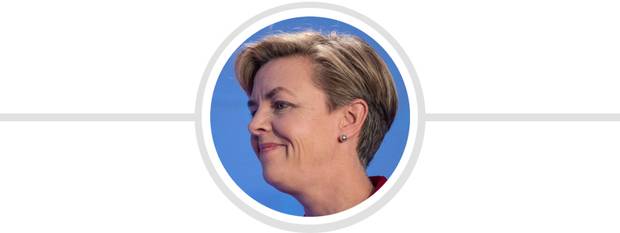
Kellie Leitch
Age: 46
Background: A former pediatric surgeon, Ms. Leitch entered federal politics in a 2010 nomination race in the riding of Simcoe-Grey. In cabinet, she held the labour and status of women portfolios. In the 2015 election, she and one of her current leadership rivals, Chris Alexander, attracted controversy by announcing a "barbaric cultural practices" tip line.
Notable policies: Ms. Leitch has invited comparisons with Donald Trump's anti-immigration rhetoric with her plan to screen newcomers for "Canadian values." She also wants to dismantle the CBC and crack down on environmental activism with new legal penalties for "illegal interference" in natural-resources development.
More reading: Values test could apply to white supremacists, Leitch says in wake of Quebec mosque attack
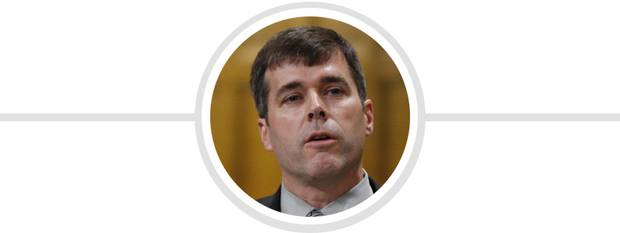
Pierre Lemieux
Age: 53
Background: After a 20-year military career, Mr. Lemieux entered politics in 2006 as an Ontario Conservative MP. He was parliamentary secretary to Erin O'Toole, one of his current rivals for the Tory leadership, when he was veterans affairs minister.
Notable policies: A social conservative, Mr. Lemieux opposes same-sex marriage and wants to reopen the abortion debate in Parliament.

Deepak Obhrai
Age: 66
Background: Mr. Obhrai entered federal conservative politics with the Reform Party in the 1990s, following its transformations into the Canadian Alliance and Conservative Party in the 2000s. Mr. Obhrai held parliamentary secretary roles for the foreign affairs and international co-operation ministers.
Notable policies: Mr. Obhrai, a Tanzanian-born Hindu who immigrated to Canada in the 1970s, has blamed the Conservatives' 2015 loss on anti-immigration rhetoric and says a new approach could turn the party's image around.
More reading: Why Obhrai thinks he can lead the party back

Erin O'Toole
Age: 44
Background: Mr. O'Toole served in the Canadian Armed Forces for a decade before practicing law. He was briefly the veteran affairs minister, inheriting the contentious portfolio from Julian Fantino as the Harper government tried to mend relations with veterans' groups over cuts to services and benefits. The Ontario MP unsuccessfully ran for interim leader of the party after the 2015 election, and served as opposition critic for public safety. Mr. O'Toole's father, John, represented the same riding at the provincial level.
Notable policies: Mr. O'Toole wants to address youth underemployment and student debt through targeted tax credits. His immigration policy would restructure the Temporary Foreign Worker and Provincial Nominee programs.
More reading: For Erin O'Toole, a chance to win by being No. 2

Rick Peterson
Age: 62
Background: Mr. Peterson is the only candidate currently in the race who hasn't held political office. In 2014, he failed in a bid to become leader of the B.C. Conservative Party. He has deep roots to the Conservative Party, having been an active member since the mid-1980s. Mr. Peterson is fluently bilingual and runs his own business in Vancouver.
Notable policies: He opposes any type of values test for citizenship but would like to implement tiered security screening and increased terrorist surveillance. He would also like to eliminate all corporate income taxes.

Lisa Raitt
Age: 49
Background: Prior to working in politics, Ms. Raitt was an executive at the Toronto Port Authority. She has represented the Greater Toronto Area riding of Milton since 2008. When the Tories were in power, she managed multiple cabinet portfolios, including transport, where she became Ottawa's point person on the deadly Lac-Mégantic rail disaster in 2013. While in the opposition, she served as the party's finance critic.
Notable policies: Ms. Raitt plans to introduce balanced budgets, repeal carbon pricing legislation and prioritize the development of Canada's natural resources.
More reading:Lisa Raitt on running for leader as husband battles Alzheimer's

Andrew Saxton
Age: 53
Background: Mr. Saxton represented the riding of North Vancouver for seven years before losing his seat in the 2015 federal election. Prior to being an MP, he was a businessman who worked in global finance. He was parliamentary secretary for multiple cabinet portfolios: the Treasury Board president, minister of Western Economic Diversification and minister of finance.
Notable policies: Mr. Saxton is running on an economic platform of lower taxes and balanced budgets.

Andrew Scheer
Age: 37
Background: Mr. Scheer is the youngest leadership candidate but has spent nearly his entire adult life in politics, having served as a Saskatchewan MP since 2004. He has no prior experience in cabinet, but did serve as House Speaker for four years, the youngest person ever to hold that office. Mr. Scheer currently has the most support from within his own caucus, with 23 MPs and six senators endorsing him.
Notable policies: Mr. Scheer is running on a fiscally conservative platform, promising to balance the federal budget in two years, open up the airline industry to foreign competition and create tax exemptions for parents of students in independent schools and parents collecting Employment Insurance benefits.
More reading: Why Andrew Scheer could be the next Conservative Party leader

Brad Trost
Age: 43
Background: Mr. Trost, a Saskatchewan native, worked as a geophysicist before being elected to the House in 2004. In opposition, he was the Conservative critic for Canada/U.S. Relations. He is a staunch fiscal and social conservative who is against marriage equality and abortion.
Notable policies: Mr. Trost promises to vote for anti-abortion bills or motions in Parliament and wants a bill to outlaw sex-selective abortion. On immigration, he wants to suspend entry to Canada from "countries or regions that support, encourage or harbour terrorists or Islamic extremism."
Who's dropped out?
Tony Clement
Why he dropped out: Mr. Clement dropped out of the race in October, 2016 prior to the first leadership debate. He cited an inability to meet the fundraising goals that he had set for himself when he started his campaign
Who he supports now: Mr. Clement threw his support behind Mr. Bernier in December in part because of the latter's willingness to take on Canada's agricultural lobby.
Kevin O'Leary
Why he dropped out: Mr. O'Leary, the TV star who many presumed to the front-runner at the time, dropped out of the race on April 26, a month before the convention. He said his decision was based on an estimation that he could not win the 2019 election due to a lack of support in Quebec.
Who he supports now: Mr. O'Leary is backing Mr. Bernier primarily because of the Quebec MP's potential to deliver results in his home province. The two have been campaigning together ahead of the convention.
What happens next?
Leadership race: The party elects its new leader in Toronto on May 27. The deadline for new members to join the party and be eligible to vote for the leader passed on March 28.
The old leader: Mr. Harper won't be attending the convention where his successor will be chosen in order to give the new leader an "opportunity to shine."
The current leader: Rona Ambrose, the party's interim leader, plans to resign her Commons seat when the House begins it summer break. She's leaving politics to join a Washington-based think tank, the Wilson Center's Canada Institute, where she'll work on Canada-U.S. trade issues.
With reports from Globe staff and The Canadian Press
Photos: The Canadian Press, Reuters, Ben Nelms for the Globe and Mail, Gloria Nieto for The Globe and Mail
CONSERVATIVE LEADERSHIP RACE: MORE FROM THE GLOBE AND MAIL
WHAT ABOUT THE NDP?
